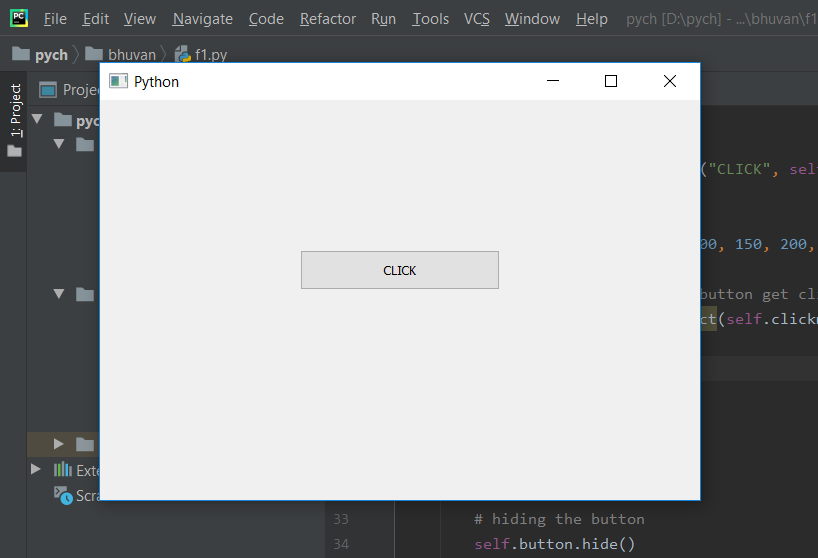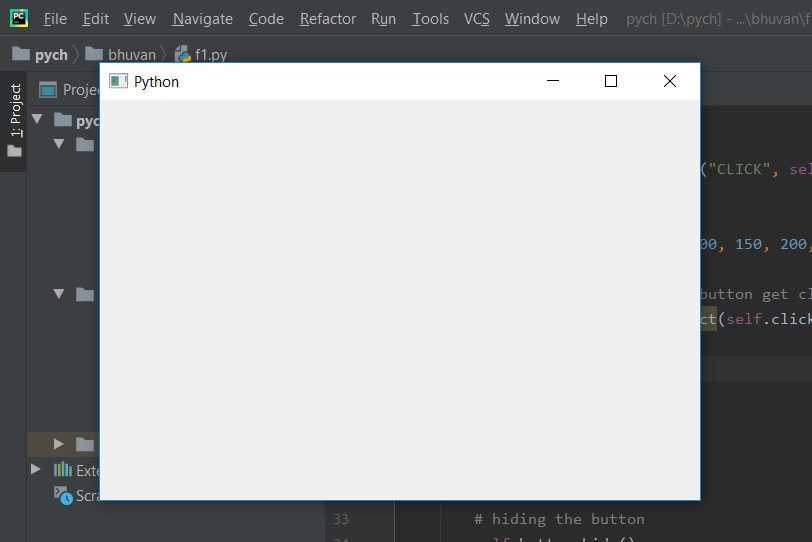En este artículo veremos cómo ocultar el pulsador. Cuando diseñamos una GUI (interfaz gráfica de usuario), creamos un botón que realiza alguna tarea cuando se presiona. Pero en algún momento es necesario ocultar el botón si se completa la tarea, para ocultar el botón usaremos el método de ocultar.
Sintaxis: button.hide()
Argumento: No requiere ningún argumento.
Acción realizada : Oculta el pulsador
Código:
Python3
# importing libraries
from PyQt5.QtWidgets import *
from PyQt5.QtGui import *
from PyQt5.QtCore import *
import sys
class Window(QMainWindow):
def __init__(self):
super().__init__()
# setting title
self.setWindowTitle("Python ")
# setting geometry
self.setGeometry(100, 100, 600, 400)
# creating a button
self.button = QPushButton("CLICK", self)
# setting up the geometry
self.button.setGeometry(200, 150, 200, 40)
# connecting method when button get clicked
self.button.clicked.connect(self.clickme)
# showing all the widgets
self.show()
# action method
def clickme(self):
# hiding the button
self.button.hide()
# printing pressed
print("pressed")
# create pyqt5 app
App = QApplication(sys.argv)
# create the instance of our Window
window = Window()
# start the app
sys.exit(App.exec())
Producción :

Cuando se presiona el botón de clic, se generará una salida y el botón se ocultará.
pressed

Publicación traducida automáticamente
Artículo escrito por rakshitarora y traducido por Barcelona Geeks. The original can be accessed here. Licence: CCBY-SA